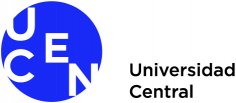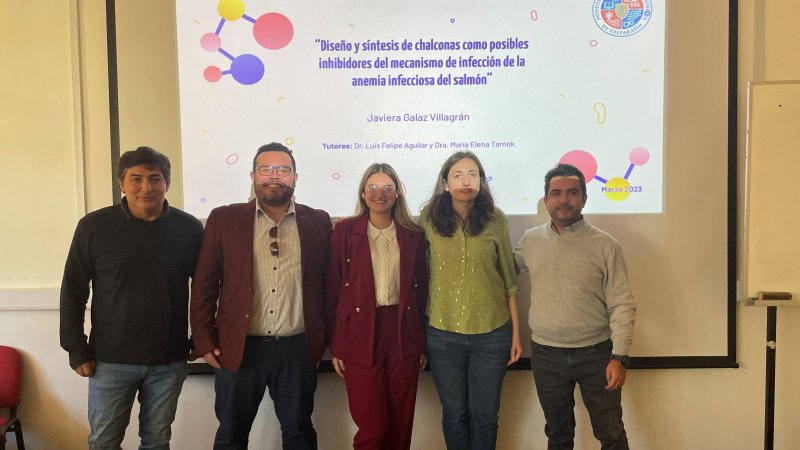
Lunes 22 de Mayo de 2023
The title of the thesis was "Design and Synthesis of Chalcones as Possible Inhibitors of the Infection Mechanism of Infectious Salmon Anemia". The subject of this work is of great interest considering the need for ISAV antiviral agents to allow the adequate production and the reduction of the economic losses associated with the presence of this virus.

After copper, salmon (salar psalm) is Chile's second export product. In this scenario, Chile occupies a relevant position in the global salmon industry, being the second largest producer of salmonids in the world after Norway, concentrating 25% of the world’s salmon production. However, since the 1980s the salmon industry has been affected by the infectious salmon anemia virus (ISAV). This virus has a mortality rate of approximately 95%, leading to high economic and employment losses. Despite all scientific efforts, ISAV control is still a problem today.
For these reasons the development of ISAV antiviral agents is a matter of great interest, since it could allow the adequate production of this marine product, reducing all the economic losses caused by the virus. In this context, our professor and researcher at the Research and Postgraduate Education Institute of the Faculty of Health Sciences of the Universidad Central de, and member of the QMEDBIN Medical Chemistry and Bioinorganic Research group, participated in the development of the thesis “Design and synthesis of chalcones as possible inhibitors of the infection mechanism of infectious salmon anemia” by Javiera Galaz, together with professors Phd. Luis F. Aguilar (PUCV), PhD. María E. Tarnok (PUCV), PhD. Waldo Acevedo (PUCV), from the Pontificia Universidad Católica de Valparaíso.
"One of the strategies for the generation of new antivirals is the use of bioinformatics techniques, which make it possible to direct the synthesis towards products that have a high probability of being active," said PhD. Mellado, adding that through this bioinformatics work a series of compounds, that will be evaluated as ISAV inhibitors, were proposed and synthesized, "this is the starting point for the development of a new generation of compounds that could inhibit the ISAV virus, and although this is just beginning, we hope to be able to obtain compounds and test their performance against this virus”.